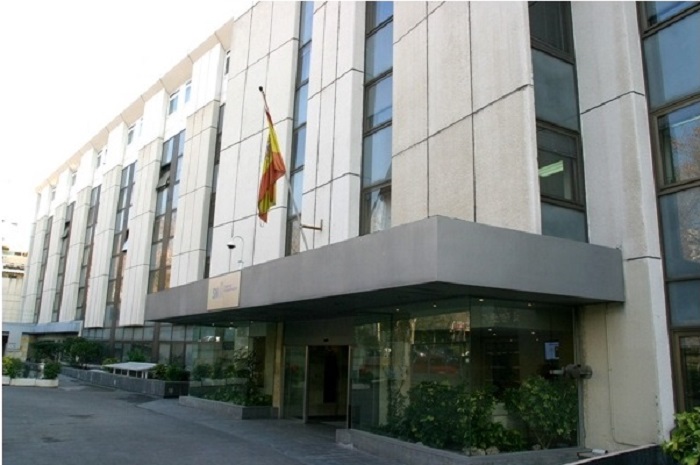Contenido principal
2020
CSN actions during the COVID-19 crisis

April 17th
Extension of the validity of the operator and supervisor licenses of radioactive facilities, of the certification courses in order to obtain them and of the radiological passbook while the declaration of state of alarm is maintained. More information.
March 31st
CSN information on compliance with established nuclear safety and radiological protection requirements during the COVID-19 pandemic. More information.
March 20th
The safety level of nuclear and radioactive facilities in Spain is the same as before the COVID-19 pandemic. More information.
According to Royal Decree 463/2020, of March 14, declaring a state of alarm in Spain for the management of the health crisis caused by COVID-19, Spain’s Nuclear Safety Council (CSN) is adopting several measures along with the temporary suspension of activity at its headquarters which was already adopted on March 13.
Some of the exceptional actions which have been implemented follow:
1.- Telework implementation.
- The presence of the minimum number of people essential to guarantee the operation of the organization has been foreseen, including:
- Guards from the security service, 24 hours, in shifts established by the Head of Security.
- A communication officer and a technician at the CSN Emergency Room (SALEM), 24 hours, in shifts established by the Coordinator for Emergency Preparedness and Response Activities. The CSN Emergency Response Organisation (ORE) has its procedures, in case of activation.
- A 24-hour maintenance technician with own CSN and contract staff, on shifts established by the Head of the General Affairs Service, coordinated by the Head of the Coordination and General Affairs Area.
- A technician from the Information Technology Deputy Direction (STI), during office hours, supported by another technician teleworking. Shifts and activation of the support technician are managed by the STI Deputy Director.
- A person in charge of managing the electronic registry and a person who will physically manage the CSN registry once a week.
- The rest of the staff will maintain their activity in the teleworking modality. To this end, numerous portable computers with remote connection (VPN) and connectivity tools allowing to conduct videoconferences through platforms such as TIXEO or SKYPE have been assigned. Furthermore, the CSN is working on computer and IT equipment acquisition and/or rental.
- In order to go to the CSN offices, exceptionally, a prior authorization regime has been established.
2.- Management of the registry for the official reception and issuance of documentation.
- An electronic registry has been implemented by assigning the registration data to the documents generated internally and by using a corporate electronic-signature tool.
- The attendance of a person for the physical management of the registry has been foreseen, once a week.
3.- The CSN Board of Commissioners will maintain its activity.
- The last plenary session was held this week at the CSN headquarters with the physical presence of the members of the Commission. From then on it has been decided to :
- Hold the weekly meeting with the Technical Directions, the Plenary preparatory meeting with the advisors and the Plenary meeting itself.
- Virtual meetings will be held every day in order to continue working and monitoring the situation.
- The members of the Commission will be informed daily by the CSN Doctor about the situation of the workers.
4.- Cleaning and sanitation.
- During the past weekend the CSN headquarters has been disinfected and services for a weekly disinfection have been contracted.
5.- Information to the staff.
- Several communications have been issued to staff, using the means of communication available to the CSN (intranet, website, email, internal newsletter, etc.).
- Internal communications are being updated, with the aim of reinforcing the normality in the work of the CSN. For this, the use of videoconference and virtual meetings is recommended at all levels.
- Priority activities will be defined, in order to optimize the activity of the Technical Directions.
6.- Closure of CSN facilities for the general public and other measures.
- One of the first measures implemented, in view of the unfavorable evolution of the epidemic observed in the previous week, was the cancellation of visits to the CSN Information Center.
- Other measures implemented were the suspension of travels not considered essential to locations outside the Community of Madrid.
- Likewise, risk groups have been identified, which were the first to be released from the development of their activity at the CSN.
- The suspension of the administrative deadlines for the ongoing administrative procedures, particularly the specific competition for the provision of jobs (BOE No. 292, of December 5, 2019) and the scholarships for specialization and training in nuclear safety and radiological protection (BOE nº 279, of November 20, 2019); two notifications have been published in this regard.
- Additionally, the inventory of health and protective material available in the CSN offices has been communicated to the Ministry of Health so that it can be made available for cleaning and disinfection activities.
March 13, 2020
The Nuclear Safety Council (CSN), following the recommendations issued by the Government of Spain in relation to COVID-19, has decided to temporarily suspend activities at its headquarters, guaranteeing, in any case, the operation of the organization.
This means that the regulatory body will carry out its daily activities by teleworking. And as usual, the on-call organization will continue to function normally in the event of any eventuality.
These guidelines adopted by the CSN are in accordance with the recommendations of both the Ministry of Territorial Policy and Public Function and the Ministry of Health, Consumption and Social Welfare.
